
Find Help
More Items From Ergsy search
-

Can Alzheimer's disease be prevented?
Relevance: 100%
-

What is Alzheimer's disease?
Relevance: 84%
-

How common is Alzheimer's disease in the UK?
Relevance: 83%
-

What causes Alzheimer's disease?
Relevance: 82%
-
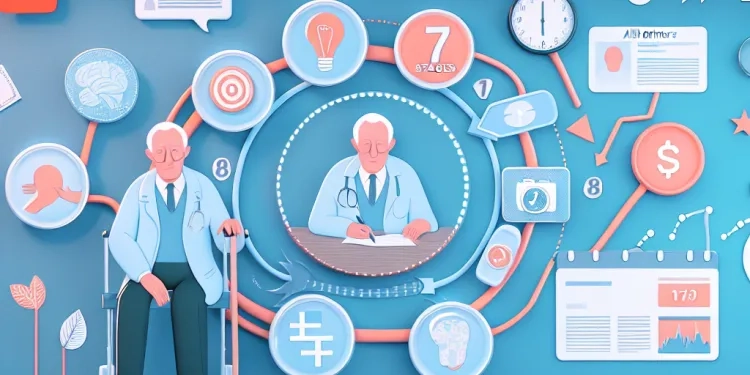
What are the stages of Alzheimer's disease?
Relevance: 78%
-

Who is at risk of developing Alzheimer's disease?
Relevance: 78%
-
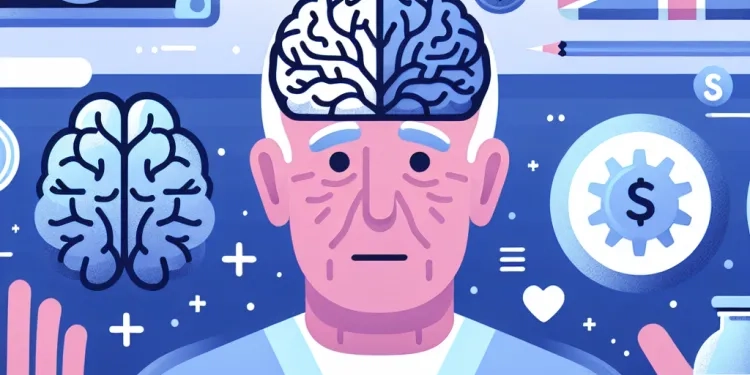
What are the symptoms of Alzheimer's disease?
Relevance: 76%
-
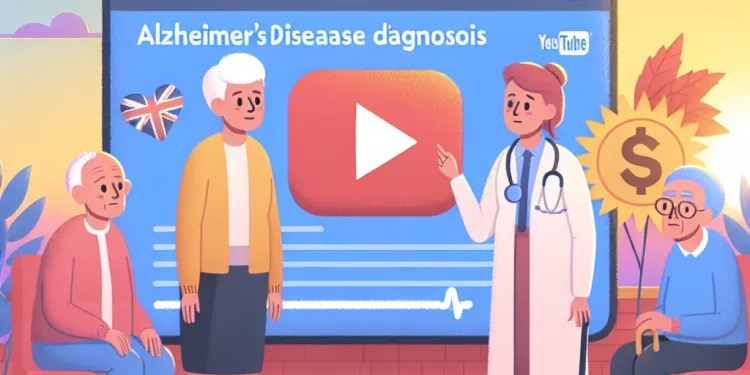
How is Alzheimer's disease diagnosed?
Relevance: 76%
-

What treatments are available for Alzheimer's disease?
Relevance: 76%
-
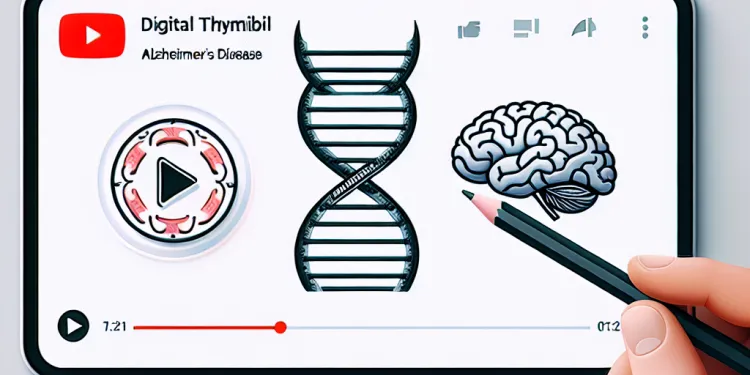
What role does genetics play in Alzheimer's disease?
Relevance: 75%
-
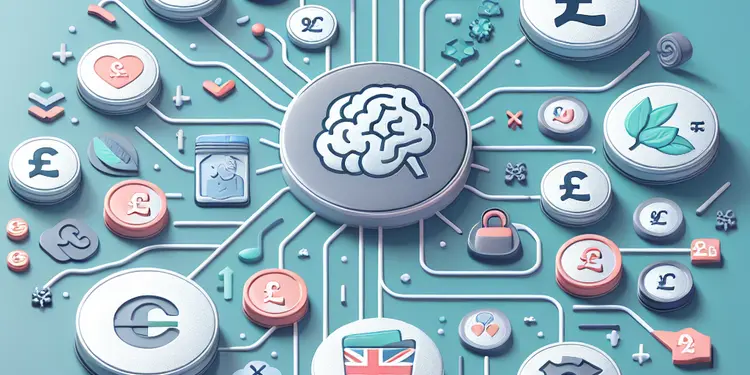
How can carers plan for future stages of Alzheimer's disease?
Relevance: 69%
-

Where can I find information about Alzheimer's disease for carers?
Relevance: 67%
-

How does Alzheimer's affect daily life?
Relevance: 58%
-

Can technology aid in the care of Alzheimer's patients?
Relevance: 55%
-

What support is available for carers of Alzheimer's patients?
Relevance: 54%
-

What online communities exist for carers of people with Alzheimer's?
Relevance: 52%
-

Are there any lifestyle changes that can help reduce the risk of Alzheimer's?
Relevance: 52%
-

What types of support are available for carers of Alzheimer's patients?
Relevance: 51%
-
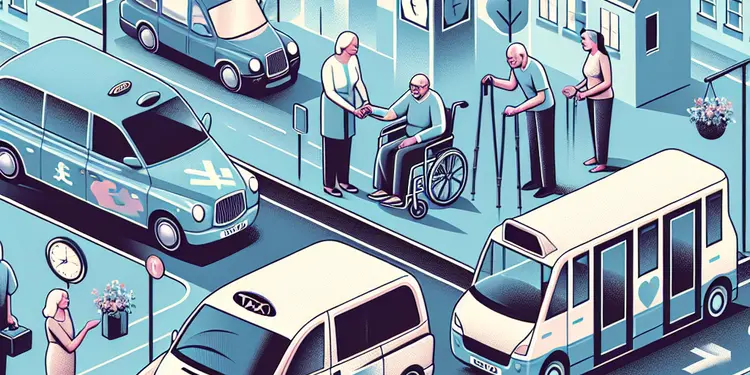
What transportation services are available for Alzheimer's patients and their carers?
Relevance: 51%
-
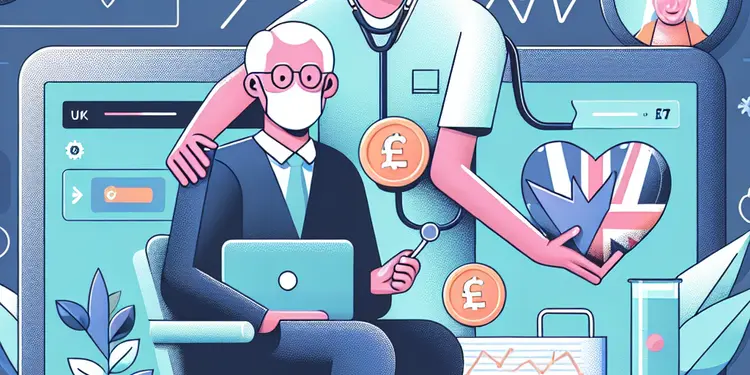
What emotional support is available for carers of Alzheimer's patients?
Relevance: 51%
-
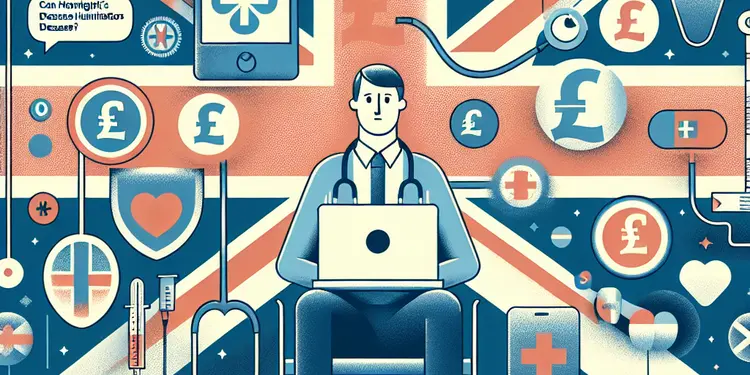
Can Huntington's disease be prevented?
Relevance: 50%
-

How important is self-care for carers of Alzheimer's patients?
Relevance: 50%
-

How can families support a loved one with Alzheimer's?
Relevance: 50%
-

Are there specific apps or tools to help carers of Alzheimer's patients?
Relevance: 49%
-

Are there financial support programs for carers of Alzheimer's patients?
Relevance: 48%
-
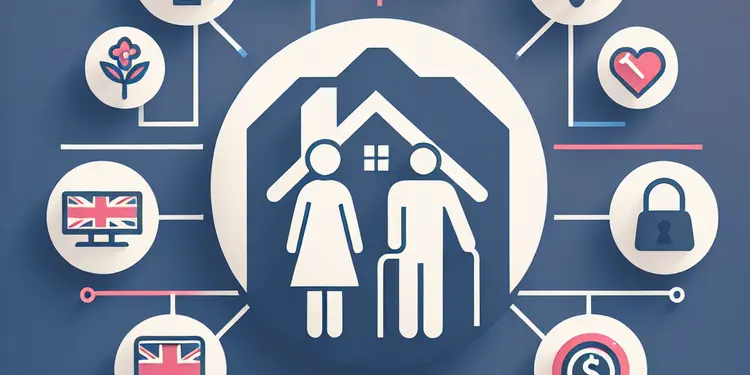
Can carers of Alzheimer's patients access in-home healthcare services?
Relevance: 48%
-

How do you prevent Lyme disease?
Relevance: 47%
-

How can support groups benefit carers of Alzheimer's patients?
Relevance: 47%
-

Can Marburg virus disease be prevented?
Relevance: 46%
-

Are there any preventative measures for flesh-eating disease?
Relevance: 46%
-

What government assistance is available for carers of Alzheimer's patients?
Relevance: 46%
-

What legal resources are available for carers of Alzheimer's patients?
Relevance: 44%
-
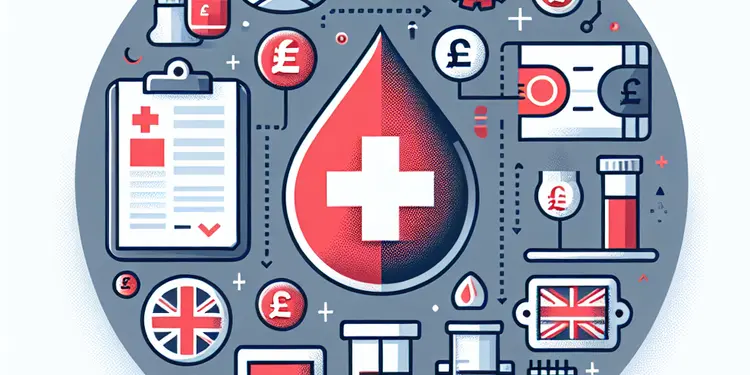
Why is blood donation history important in preventing disease transmission?
Relevance: 41%
-

How is blood screened to prevent disease transmission?
Relevance: 41%
-

Can lifestyle changes reduce the need for medication for heart disease prevention?
Relevance: 40%
-
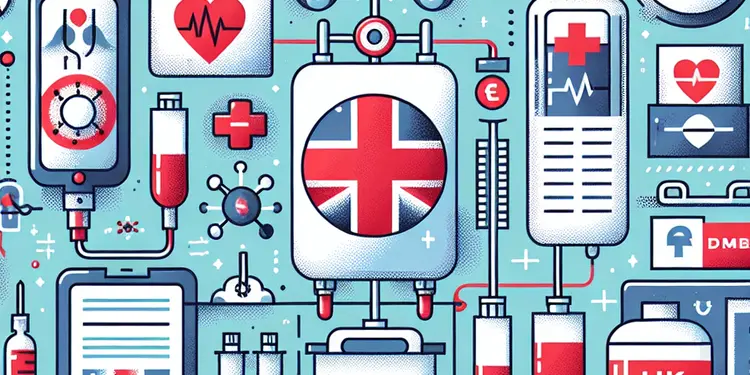
What measures are taken to prevent disease transmission in blood transfusions?
Relevance: 40%
-

What is the finger prick blood test for Alzheimers?
Relevance: 39%
-

How can carers manage stress while caring for someone with Alzheimer's?
Relevance: 36%
-

What measures are being taken to prevent mosquito-borne diseases in the UK?
Relevance: 36%
-

Liver disease | NHS
Relevance: 34%
Can Alzheimer's Disease Be Prevented?
Alzheimer's disease is a progressive neurodegenerative disorder that affects millions of people worldwide, and tackling its onset is a primary concern in medical research. While a definitive prevention method remains elusive, a combination of lifestyle choices and early interventions may help reduce its risk or delay onset in the United Kingdom and beyond. This article delves into various preventative strategies, focusing on evidence-based approaches that can be incorporated into daily life.
Maintaining a Healthy Diet
Research suggests that certain dietary patterns may influence cognitive function and potentially lower the risk of Alzheimer's. The Mediterranean diet, rich in fruits, vegetables, whole grains, olive oil, and fish, has been linked to reduced dementia rates. Similarly, the MIND diet, which combines elements of the Mediterranean and DASH diets, emphasizes foods such as leafy greens, nuts, berries, and beans, aiming specifically at brain health. Britons can benefit from incorporating these dietary habits into their routine, reducing processed foods and saturated fats known to impact cognitive health negatively.
Engaging in Regular Physical Activity
Physical activity is a well-recognized factor in maintaining brain health. Regular exercise promotes blood flow to the brain, reduces inflammation, and aids in the maintenance of brain plasticity. In the UK, adults are encouraged to engage in at least 150 minutes of moderate aerobic activity each week. Activities like brisk walking, cycling, or swimming can be particularly beneficial in preserving cognitive function and potentially delaying the onset of Alzheimer's.
Staying Mentally and Socially Active
Cognitive engagement and social interactions are important in maintaining a healthy mind. Mental exercises such as puzzles, reading, or learning new skills can stimulate the brain and protect against mental decline. Similarly, maintaining an active social life can reduce the risk of cognitive degeneration. In the UK, many community groups and programmes exist to support these activities, providing opportunities for interactions and maintaining mental sharpness.
Monitoring Cardiovascular Health
Cardiovascular health is closely linked with cognitive health. Conditions like hypertension, diabetes, and obesity can increase the risk of Alzheimer's disease. Regular health check-ups to monitor blood pressure, cholesterol levels, and blood sugar can help manage these risk factors. For individuals in the UK, the NHS provides various tools and services to help manage and mitigate these risks effectively.
Overall, while a guaranteed prevention of Alzheimer's disease remains beyond reach, adopting a lifestyle that encompasses a healthy diet, regular physical activity, mental engagement, social interaction, and good cardiovascular health can collectively contribute to reducing the risk or delaying its onset.
Can We Stop Alzheimer's Disease?
Alzheimer's disease is a sickness of the brain. It affects many people all over the world. Doctors want to find a way to stop it. We don't know exactly how to prevent it yet. But, making some choices can help. These choices might lower the risk or delay it. Let's look at what you can do to help prevent it.
Eating Healthy Food
Eating good food can help your brain. Eating lots of fruits, vegetables, and fish is healthy. The Mediterranean diet is great. It includes these foods. Another good diet is called the MIND diet. It includes leafy greens, nuts, berries, and beans. Try to eat less junk food and fats. This can help your brain stay healthy.
Doing Exercise
Exercise is important for your brain. It helps get blood to your brain. It also reduces swelling. In the UK, adults should do 150 minutes of exercise each week. Walking, cycling, or swimming are good choices. Exercise can help keep your brain strong.
Keeping Your Mind and Heart Busy
Using your brain is important. Doing puzzles, reading, or learning new things can help. Talking to people and making friends is important too. Being social helps your brain stay active. In the UK, you can join groups to meet people and do fun activities.
Watching Your Heart Health
Heart health affects your brain health. Problems like high blood pressure, diabetes, and being very overweight can increase the risk of Alzheimer's. It's important to see a doctor to check your heart health. In the UK, the NHS can help you keep track of these problems.
In the end, we can't stop Alzheimer's disease for sure. But living a healthy life can help. Eat well, exercise, keep your mind busy, and watch your heart health. These things can help reduce the risk or delay Alzheimer's.
Frequently Asked Questions
What is Alzheimer's disease?
Alzheimer's disease is a progressive neurological disorder that causes memory loss, cognitive decline, and behavioral changes. It is the most common form of dementia.
Can Alzheimer's disease be prevented?
Currently, there is no certain way to prevent Alzheimer's disease, but certain lifestyle choices may reduce the risk or delay the onset.
Is there a genetic risk for Alzheimer's disease?
Yes, genetics can play a role in Alzheimer's risk. Having a family history of the disease can increase your chances, but it does not guarantee you will develop it.
How does physical activity affect Alzheimer's risk?
Regular physical activity may help reduce the risk of developing Alzheimer's by promoting better blood flow to the brain and supporting overall brain health.
Does diet influence the risk of Alzheimer's?
A healthy diet, such as the Mediterranean diet, which is rich in fruits, vegetables, whole grains, and healthy fats, may lower the risk of Alzheimer's and support brain health.
Can mental exercises help prevent Alzheimer's?
Engaging in mentally stimulating activities, such as puzzles, learning new skills, or reading, may help maintain brain health and reduce the risk of Alzheimer's.
What impact do social interactions have on Alzheimer's risk?
Maintaining social connections and engaging in community activities can be beneficial for brain health and may lower the risk of Alzheimer's disease.
Is there a connection between cardiovascular health and Alzheimer's?
Yes, good cardiovascular health supports brain health. Managing risk factors like high blood pressure, diabetes, and high cholesterol can help reduce Alzheimer's risk.
How does sleep affect Alzheimer's risk?
Getting adequate, quality sleep is important. Sleep helps clear toxins from the brain that could otherwise contribute to Alzheimer's disease.
Can stress management aid in reducing Alzheimer's risk?
Effective stress management through activities like mindfulness, yoga, or meditation may benefit brain health and potentially reduce Alzheimer's risk.
What role does alcohol consumption play in Alzheimer's risk?
Moderate alcohol consumption may have protective effects against Alzheimer's, but excessive drinking can increase risk. It's important to follow guidelines for safe alcohol use.
Are there any medical treatments available to prevent Alzheimer's?
Currently, there are no medications approved to prevent Alzheimer's, but research is ongoing to find potential preventive treatments.
How does controlling diabetes relate to Alzheimer's prevention?
Managing diabetes effectively is important, as high blood sugar levels can harm the brain and increase the risk of Alzheimer's disease.
Does smoking affect Alzheimer's risk?
Smoking is a known risk factor for Alzheimer's disease. Quitting smoking can help improve heart and brain health, thereby reducing the risk.
What are scientists researching for Alzheimer's prevention?
Scientists are exploring various approaches, including lifestyle changes, genetic studies, and new medications, to find ways to prevent or delay Alzheimer's disease.
What is Alzheimer's disease?
Alzheimer's disease is a sickness that affects the brain. It makes it hard to remember things and think clearly.
Alzheimer's can change how people feel and behave.
If you want support, try using pictures and simple lists to help remember things. You can also talk to a doctor or a special helper.
Alzheimer's disease is a brain illness. It makes people forget things and can change the way they think and behave. It is the most common kind of dementia.
Can we stop Alzheimer's disease from happening?
We do not know how to stop Alzheimer's disease for sure.
But, doing some things might help keep your brain healthy:
- Eat healthy food like fruits and vegetables.
- Exercise your body, like walking or playing sports.
- Use your brain by reading, doing puzzles, or learning new things.
- Sleep well at night.
It is good to talk to your family or doctor if you are worried.
Using a calendar or setting reminders on your phone can help you remember things.
Right now, we don't know for sure how to stop Alzheimer's disease. But, making some good choices in how we live might help lower the chance of getting it or make it start later.
Does Alzheimer's disease run in families?
Yes, your genes can affect your risk of getting Alzheimer's. If someone in your family has it, you might have a higher chance of getting it too. But it does not mean you will definitely get it.
How does moving your body change your chances of getting Alzheimer's?
When you move your body, like playing, walking, or doing sports, it helps your brain stay healthy. This can lower the chance of getting Alzheimer's when you are older.
If you move your body often, it keeps your brain strong. This can be like a shield against Alzheimer's.
Try to move your body every day. You could walk, dance, or play a fun game.
Here are some tips to help you move more:
- Go for a walk in the park.
- Dance to your favorite music.
- Play a sport you enjoy.
Ask a friend or family member to join you. It makes moving more fun!
Using a checklist of activities can make it easier to remember to move every day.
Doing exercise is good for you. It can help your brain stay healthy. When you move your body, blood flows to your brain. This can lower the chance of getting Alzheimer's.
Can what we eat affect the chance of getting Alzheimer's?
What we eat might change the chance of getting a sickness called Alzheimer's.
To help understand, you can:
- Use simple words and pictures.
- Take breaks when reading.
- Ask someone to read with you.
A healthy diet is good for your brain. The Mediterranean diet is a healthy diet. It has lots of fruits, vegetables, whole grains, and good fats. Eating like this can help keep your brain strong and may lower the chance of getting Alzheimer's.
Try to eat more fruits and veggies every day. Use whole grain bread instead of white. Add foods like nuts and olive oil for healthy fats.
Can brain games stop Alzheimer’s?
Alzheimer’s is an illness that makes it hard to remember things. Some people think playing brain games might help.
Brain games are puzzles and activities that make you think, like crosswords or memory games.
These games can keep your brain busy and strong. They might help delay memory problems.
It is good to do brain games, but also stay active and eat healthy food. Talk to a doctor for advice.
Here are some ideas to help:
- Play games like jigsaw puzzles or word searches.
- Read books or listen to stories.
- Do easy exercises like walking.
Doing fun activities for your brain, like puzzles, learning new things, or reading, can help keep your brain healthy. It might also lower the chance of getting a disease called Alzheimer's.
How do spending time with people affect the chance of getting Alzheimer's?
Spending time with friends and family can help the brain stay healthy. It might lower the chance of getting Alzheimer's disease, which is a sickness that makes people forget things.
Doing fun activities with others, like playing games or talking, keeps the brain active. An active brain stays strong and healthy.
If you are worried about Alzheimer's, try to spend time with people you like. This can help your brain stay in good shape.
It's also important to talk to a doctor about any concerns. They can offer advice and support.
Spending time with friends and joining in on community activities is good for your brain. It can help keep your brain healthy and may lower the chances of getting Alzheimer's disease.
Is there a link between heart health and Alzheimer's?
Yes, a healthy heart helps keep the brain healthy too. Taking care of things like high blood pressure, diabetes, and high cholesterol can lower the chance of getting Alzheimer's disease.
How does sleep change your chance of getting Alzheimer's?
Getting enough sleep is important for your brain. If you do not sleep well, it can increase the chance of getting a sickness called Alzheimer's. This sickness makes it hard to remember things.
Try these tips to sleep better:
- Go to bed at the same time every night.
- Turn off screens like computers or phones before bed.
- Keep your bedroom quiet and dark.
Using calming apps or listening to soft music can also help you sleep.
Getting enough good sleep is important. Sleep helps clean bad stuff from the brain. This can stop problems like Alzheimer's disease.
Can managing stress help lower the risk of Alzheimer's?
Stress is when you feel worried or nervous. It can be bad for your body and mind.
Alzheimer's is a disease that makes it hard to remember things. It can also make it difficult to think clearly.
Managing stress might help lower the risk of getting Alzheimer's disease.
Here are some ways to manage stress:
- Take deep breaths to calm yourself.
- Talk to someone you trust about your feelings.
- Do something fun or relaxing, like drawing or listening to music.
- Exercise, like going for a walk or playing a sport you enjoy.
If stress becomes too much, it's important to ask for help from a doctor or a counselor.
Doing things like mindfulness, yoga, or meditation can help you feel less stressed. This can be good for your brain and might help lower the chance of getting Alzheimer's disease.
How does drinking alcohol affect the chance of getting Alzheimer's?
Drinking a little bit of alcohol might help prevent Alzheimer's. But drinking too much alcohol can make it more likely to get Alzheimer's. It is important to drink the right amount and follow the rules for safe drinking.
Here are some tips to help:
- Use a drinking guide to know how much is safe.
- Ask an adult or a doctor if you're not sure how much to drink.
- Use reminders to help you keep track of how much you drink.
Can medicine stop Alzheimer's from happening?
Right now, there are no medicines to stop Alzheimer's disease. But people are working hard to find ways to prevent it.
Can controlling diabetes help stop Alzheimer's?
It's important to keep diabetes under control. High blood sugar can hurt the brain and make it more likely to get Alzheimer's disease.
Does smoking affect the risk of getting Alzheimer's?
Smoking is bad for your brain. It can make you more likely to get Alzheimer's disease, which hurts your memory. If you smoke, it's good to stop. This can help keep your brain healthier.
To understand more or get help to quit smoking, try these tips:
- Talking to a doctor or nurse can give you good advice.
- Join a group where people support each other to stop smoking.
- Use apps or websites that help people quit smoking.
Smoking is bad for your brain and can cause Alzheimer's disease. If you stop smoking, your heart and brain will be healthier. This can help you stay safe from the disease.
What are scientists looking into to stop Alzheimer's?
Scientists are trying to find ways to stop Alzheimer's before it starts. Here are some things they are looking at: - Eating healthy food - Exercising more - Playing brain games These can help keep your brain strong. Tools like reminders or using apps can help you remember to do these activities.Doctors and scientists are looking at different ways to help people so they don't get Alzheimer's disease too early. They are checking things like how we live our lives, our genes, and trying out new medicines.
Useful Links
This website offers general information and is not a substitute for professional advice.
Always seek guidance from qualified professionals.
If you have any medical concerns or need urgent help, contact a healthcare professional or emergency services immediately.
- Ergsy carfully checks the information in the videos we provide here.
- Videos shown by Youtube after a video has completed, have NOT been reviewed by ERGSY.
- To view, click the arrow in centre of video.
- Most of the videos you find here will have subtitles and/or closed captions available.
- You may need to turn these on, and choose your preferred language.
- Go to the video you'd like to watch.
- If closed captions (CC) are available, settings will be visible on the bottom right of the video player.
- To turn on Captions, click settings .
- To turn off Captions, click settings again.
More Items From Ergsy search
-

Can Alzheimer's disease be prevented?
Relevance: 100%
-

What is Alzheimer's disease?
Relevance: 84%
-

How common is Alzheimer's disease in the UK?
Relevance: 83%
-

What causes Alzheimer's disease?
Relevance: 82%
-

What are the stages of Alzheimer's disease?
Relevance: 78%
-

Who is at risk of developing Alzheimer's disease?
Relevance: 78%
-

What are the symptoms of Alzheimer's disease?
Relevance: 76%
-

How is Alzheimer's disease diagnosed?
Relevance: 76%
-

What treatments are available for Alzheimer's disease?
Relevance: 76%
-

What role does genetics play in Alzheimer's disease?
Relevance: 75%
-

How can carers plan for future stages of Alzheimer's disease?
Relevance: 69%
-

Where can I find information about Alzheimer's disease for carers?
Relevance: 67%
-

How does Alzheimer's affect daily life?
Relevance: 58%
-

Can technology aid in the care of Alzheimer's patients?
Relevance: 55%
-

What support is available for carers of Alzheimer's patients?
Relevance: 54%
-

What online communities exist for carers of people with Alzheimer's?
Relevance: 52%
-

Are there any lifestyle changes that can help reduce the risk of Alzheimer's?
Relevance: 52%
-

What types of support are available for carers of Alzheimer's patients?
Relevance: 51%
-

What transportation services are available for Alzheimer's patients and their carers?
Relevance: 51%
-

What emotional support is available for carers of Alzheimer's patients?
Relevance: 51%
-

Can Huntington's disease be prevented?
Relevance: 50%
-

How important is self-care for carers of Alzheimer's patients?
Relevance: 50%
-

How can families support a loved one with Alzheimer's?
Relevance: 50%
-

Are there specific apps or tools to help carers of Alzheimer's patients?
Relevance: 49%
-

Are there financial support programs for carers of Alzheimer's patients?
Relevance: 48%
-

Can carers of Alzheimer's patients access in-home healthcare services?
Relevance: 48%
-

How do you prevent Lyme disease?
Relevance: 47%
-

How can support groups benefit carers of Alzheimer's patients?
Relevance: 47%
-

Can Marburg virus disease be prevented?
Relevance: 46%
-

Are there any preventative measures for flesh-eating disease?
Relevance: 46%
-

What government assistance is available for carers of Alzheimer's patients?
Relevance: 46%
-

What legal resources are available for carers of Alzheimer's patients?
Relevance: 44%
-

Why is blood donation history important in preventing disease transmission?
Relevance: 41%
-

How is blood screened to prevent disease transmission?
Relevance: 41%
-

Can lifestyle changes reduce the need for medication for heart disease prevention?
Relevance: 40%
-

What measures are taken to prevent disease transmission in blood transfusions?
Relevance: 40%
-

What is the finger prick blood test for Alzheimers?
Relevance: 39%
-

How can carers manage stress while caring for someone with Alzheimer's?
Relevance: 36%
-

What measures are being taken to prevent mosquito-borne diseases in the UK?
Relevance: 36%
-

Liver disease | NHS
Relevance: 34%


